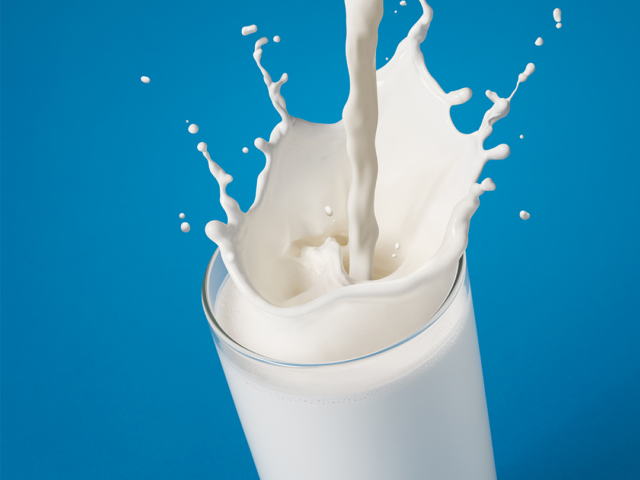Milk has been a dietary staple for centuries, providing essential nutrients and playing a significant role in our diets. However, discussions surrounding the impact of milk on heart health have led to a range of opinions, often fueled by conflicting information. In this blog post, we’ll explore the relationship between milk consumption and heart health, addressing common myths and providing evidence-based insights to help you make informed dietary choices.
Understanding Heart Health
Before delving into the milk-heart health connection, let’s briefly review the key factors that contribute to heart health:
- Cholesterol Levels: High levels of LDL (low-density lipoprotein) cholesterol, often referred to as “bad” cholesterol, are associated with an increased risk of heart disease.
- Blood Pressure: Hypertension, or high blood pressure, is a significant risk factor for heart disease.
- Inflammation: Chronic inflammation in the body can contribute to the development of heart disease.
The Dairy Dilemma: Separating Facts from Myths
Myth: Dairy Increases Cholesterol Levels
One common misconception is that dairy products, including milk, can significantly raise cholesterol levels. While dairy products do contain saturated fats, which can influence cholesterol levels, the impact is not as straightforward as it may seem.
Fact: Dairy’s Impact on Cholesterol is Varied
Research suggests that the relationship between dairy consumption and cholesterol levels varies from person to person. Some individuals experience an increase in LDL cholesterol when consuming high amounts of full-fat dairy, while others show no significant change. It’s important to consider the overall quality of your diet, as well as individual factors such as genetics and metabolism.
Myth: Milk is High in Saturated Fat
Saturated fat has been linked to heart disease, leading some to believe that milk, especially whole milk, is detrimental to heart health.
Fact: Choose Low-Fat Dairy Options
While whole milk does contain saturated fat, there are lower-fat dairy options available, such as skim milk, 1% milk, and low-fat yogurt. Opting for these options can help reduce your saturated fat intake while still providing essential nutrients.
Myth: Dairy Increases Blood Pressure
Excessive sodium intake is associated with high blood pressure, and some dairy products can be high in sodium.
Fact: Choose Low-Sodium Dairy Products
Not all dairy products have high sodium content. Choose unsalted or low-sodium versions of cheese, yogurt, and other dairy items. Additionally, consuming dairy products as part of a balanced diet rich in fruits, vegetables, and whole grains can help regulate blood pressure.

The Role of Dairy in Heart Health
- Calcium: Dairy products are rich in calcium, which is essential for bone health. Adequate calcium intake may also have a modest positive effect on blood pressure regulation.
- Vitamin D: Many dairy products are fortified with vitamin D, which supports bone health and has been associated with a reduced risk of heart disease.
- Protein: Dairy is a source of high-quality protein that can be part of a balanced diet.
- Conjugated Linoleic Acid (CLA): Some studies suggest that CLA, found in dairy products like milk and cheese, may have potential heart health benefits.
Balancing Your Dairy Consumption
- Moderation: If you enjoy dairy products, consume them in moderation and choose lower-fat options to manage your saturated fat intake.
- Variety: Consider incorporating a variety of dairy sources, such as low-fat yogurt, skim milk, and reduced-fat cheese, to obtain the benefits of dairy while managing your dietary choices.
- Focus on Overall Diet: Heart health is influenced by your overall dietary pattern. A diet rich in fruits, vegetables, whole grains, lean proteins, and healthy fats can support heart health, whether or not you include dairy products.
Individual Considerations
It’s important to recognize that everyone’s nutritional needs and responses to dairy products are unique. Factors such as genetics, existing health conditions, and lifestyle choices play a significant role in how your body processes dairy.
Consulting a Healthcare Professional
If you have concerns about the impact of dairy consumption on your heart health, consider consulting a registered dietitian or healthcare professional. They can provide personalized guidance based on your individual health profile and dietary preferences.
In Conclusion
The relationship between milk consumption and heart health is complex and individualized. While some myths about dairy’s negative impact on heart health persist, evidence suggests that dairy can be part of a heart-healthy diet when consumed in moderation and in the context of a balanced dietary pattern according to Skope Mag. By focusing on low-fat options, monitoring sodium intake, and considering your overall dietary choices, you can make informed decisions about incorporating dairy products into your diet while supporting your heart health goals. Remember that maintaining a diverse and balanced diet, along with regular exercise and other heart-healthy practices, are key components of promoting cardiovascular well-being.


